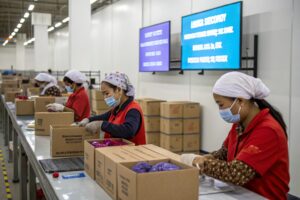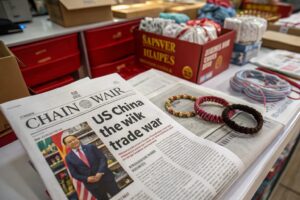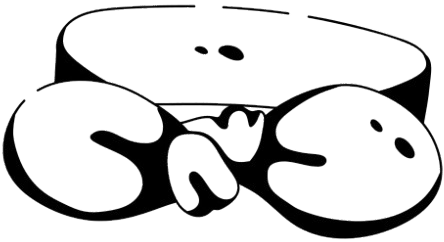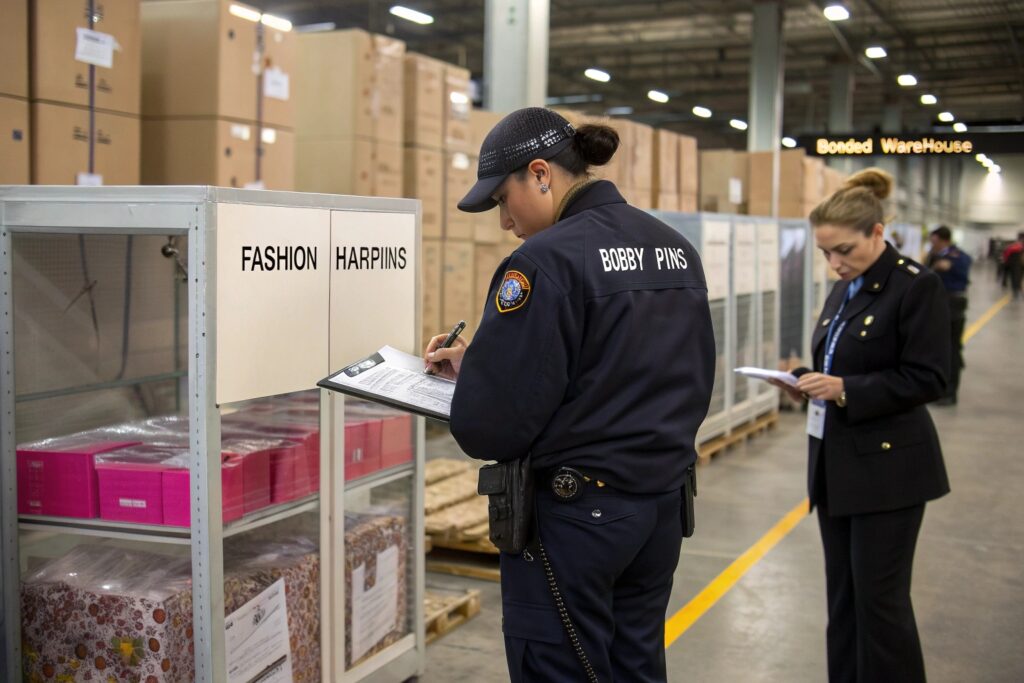Tariffs can disrupt profits, delay shipments, and complicate supply chains. For many US-based buyers of fashion accessories from China, avoiding these extra costs is a top priority.
Chinese hair accessories manufacturers can reduce or avoid US tariffs through legal transshipment strategies, bonded warehouses, HS code optimization, and leveraging trade agreements. Understanding these methods helps buyers and suppliers lower import taxes while staying compliant.
If you're a US-based buyer sourcing headbands, scrunchies, or hairpins from China, tariffs can seriously eat into your margins. But you don't have to accept high duties as your new normal. Let me walk you through how we’ve helped buyers like you work around this challenge, legally and effectively.
How to avoid US tariffs?
Tariffs aren't just taxes—they're deal breakers. US buyers hesitate to commit when they know their landed costs might shoot up by 25% or more due to trade wars or regulatory updates.
To avoid US tariffs legally, Chinese suppliers can use third-country transshipment, tariff engineering, bonded zones, and strategic logistics routing. These methods reduce exposure to high-duty rates while complying with customs laws.

Can using bonded warehouses delay or reduce tariffs?
Yes. Bonded warehouses, especially in regions like Hong Kong or Malaysia, let us store goods without paying duties until they are formally imported into the US. We often hold our clients’ hair accessories in bonded facilities while coordinating split shipments that remain under de minimis thresholds ($800 in the US).
This helps Amazon sellers and boutique retailers receive consistent stock without upfront tax burdens. Our team oversees these operations with licensed customs brokers who ensure full compliance.
Does HS code classification affect tariff rates?
Absolutely. Every product falls under a specific Harmonized System (HS) code that determines duty rates. We actively help our clients by selecting materials or combinations that reduce tariffs.
For example, if you order pearl-decorated claw clips, changing the base material from metal to resin may drop the tariff rate. We've also bundled certain accessories in sets (e.g. a fabric headband + scrunchie) to shift classification under textile goods, which often face lower duties.
Are Chinese suppliers offering US Amazon sellers a tariff solution but it's not legal?
It’s no secret that some sellers get offered deals that seem too good to be true. Phrases like “we’ll mark it as a gift” or “declare a low value” might sound like simple shortcuts—but they're risky and illegal.
Yes, some suppliers offer unauthorized workarounds like false declarations or under-invoicing. While they may reduce costs short-term, these practices expose US buyers to customs audits, fines, and platform bans.

What shortcuts do some suppliers use that are considered illegal?
Some small or unlicensed factories in China offer to under-invoice, mislabel the goods, or declare commercial shipments as samples or gifts to avoid tariffs. They might mark a $5,000 shipment as $200 to help buyers dodge customs scrutiny.
But the real risk lands on you—the importer. If detected, US Customs and Border Protection (CBP) may seize the shipment, impose triple-duty penalties, or even refer the case for criminal investigation. E-commerce platforms like Amazon or Walmart.com may suspend accounts flagged for customs fraud.
What’s the better long-term alternative?
We at HairAcc never understate invoices or misdeclare goods. Instead, we work with you to build compliant tariff strategies—like DDP shipping, bonded storage, or smart product design. This way, your business stays safe and scalable, especially if you're selling in the US or Europe where customs laws are strictly enforced.
How can I avoid import tax from China?
Every dollar in taxes adds up—especially when you’re scaling a business. Many US importers want solutions that are sustainable, legal, and compatible with their logistics workflows.
To legally avoid or reduce import taxes from China, buyers can explore bonded warehouses, switch incoterms (e.g., DDP), or utilize Free Trade Zones and final-mile fulfillment from non-tariff countries.

Can I switch to DDP terms to avoid surprise taxes?
Yes. With Delivered Duty Paid (DDP), we—the seller—handle all import duties, customs clearance, and shipping to your door. You pay one flat rate and get guaranteed delivery without worrying about hidden charges.
Our clients, especially Amazon sellers, prefer DDP because it simplifies their operations. We work with DDP specialists in Hong Kong and Southeast Asia to make the process efficient and reliable.
Is it legal to split shipments for tax benefits?
Yes, as long as it’s done transparently. US law allows packages under $800 per day per consignee to be imported duty-free under Section 321. Many of our customers split a $10,000 shipment into smaller lots shipped over a week or two to reduce duty exposure.
Our logistics team helps schedule, pack, and label these properly to ensure smooth customs clearance. This is particularly useful for accessories like headbands, clips, or scarves that have high retail margins but strict cost targets.
Does China have tariffs on US products?
The trade war went both ways. While the US imposed duties on Chinese goods, China responded with its own list. But fortunately, these mostly target agriculture and tech—not fashion accessories.
Yes, China has retaliatory tariffs on certain US goods—mostly agricultural and industrial products—but not typically on hair accessories or consumer textiles.

Do US exporters of accessories face problems in China?
Generally, no. If you're a US brand shipping headwear, scarves, or fashion accessories into China, you won't face retaliatory tariffs. Most of the restrictions apply to food, electronics, and automotive components.
Many US sellers actually find China a booming market for fashion goods. Platforms like Douyin and Xiaohongshu are opening doors to Western fashion brands.
How do Chinese manufacturers like us adjust to global tariff changes?
We stay ahead of changes. Over the past three years, HairAcc has built flexible production networks across Southeast Asia. If one route becomes too costly or restricted, we can pivot—fast.
We also invest in ongoing training for our logistics and compliance teams. Whether it's adjusting HS codes or filing GSP claims for clients in certain countries, we keep your sourcing tariff-proof without ever crossing legal lines.
Conclusion
Avoiding US tariffs isn’t about cheating the system—it’s about understanding it. With smart logistics, HS code planning, and legal workarounds like DDP or transshipment, Chinese manufacturers like us can help US buyers stay profitable and compliant.









